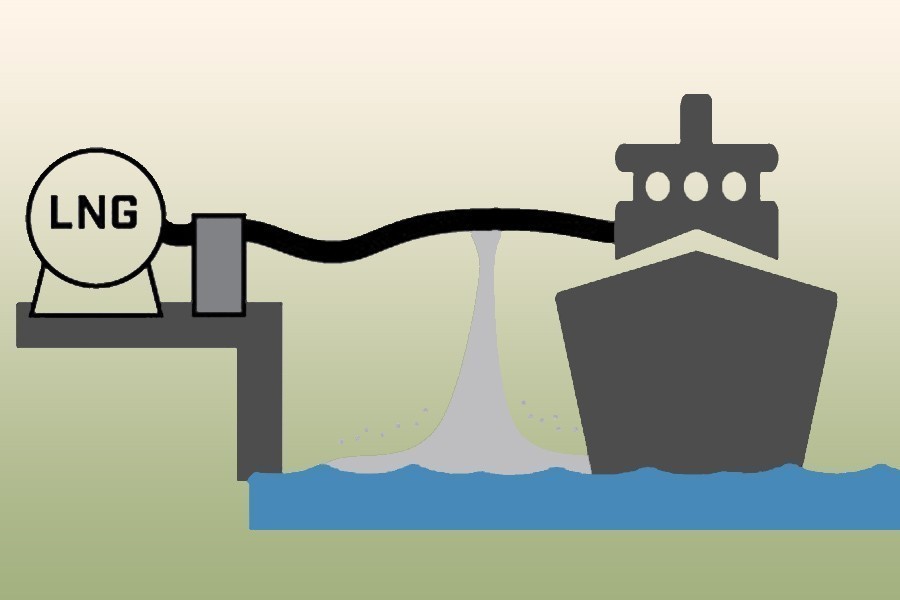
Published :
Updated :

The world is passing a golden age of natural gas, and countries like Bangladesh can make the best use of global LNG (liquefied natural gas) surplus to further make electricity generation and distribution affordable, speakers at a virtual media conference said.
Bangladesh can move faster on the path to de-carbonization and continue leveraging the installed and upcoming gas power capacity, acting as a catalyst in promoting the growth of renewable energy, they opined.
The US-based GE Gas Power recently organized the roundtable titled 'Pathways to Faster De-carbonization with Gas and Renewables.'
GE Gas Power's marketing leader Brian Gutknecht, emergent technologies director Jeffrey Goldmeer, South Asia's CEO Deepesh Nanda, chief technology officer Abdurrahman Khalidi, and commercial growth director Michael Konadu, among others, spoke on the occasion.
"The Government of Bangladesh is taking giant leaps to prioritise supply of uninterrupted and reliable electricity to its people while moving towards establishing a sustainable energy mix. It aims at generating 10 percent of the nation's electricity from renewables," said Mr Nanda.
Despite primarily being a gas-based power economy and reaching the level of 20,000 megawatts (MW) in power generation capacity, Bangladesh's power sector is still dependent on using liquid fuels, he noted.
"With coming live of the LNG terminals in the country to supply natural gas, Bangladesh can move faster on the path to de-carbonization."
"The country has a great chance to continue leveraging the installed and upcoming gas power capacity, acting as a catalyst in promoting the growth of renewable energy," he added.
GE believes that while addressing climate change is an urgent global priority, supportive policies are needed to secure investments to take tangible actions, the speakers said on the occasion.
GE Gas Power is working closely with the Government of Bangladesh and industry players to bring the latest technology here that can support the future growth curve of the country, they added.
As of today, GE has an installed base of 39 gas turbines, generating approximately 3,000 MW of electricity in Bangladesh.
The company has a multiple portfolio of gas turbine technologies, including H-class, E-class, F-class, Frame 6, and aero-derivatives, installed across the operational and upcoming power plants in the country.
Uninterrupted, reliable and affordable electricity is needed in Bangladesh to support its future economic growth, they opined.
However, improving the power generation infrastructure and nationwide distribution network of electricity are the tasks needed to transform the power sector of Bangladesh.
Gas power is playing a critical role in the transition to a lower carbon future, the speakers said, adding, "GE believes that to impact trajectory of climate change globally, we need accelerated and strategic deployment of renewables and gas power."
Azizjst@yahoo.com


 For all latest news, follow The Financial Express Google News channel.
For all latest news, follow The Financial Express Google News channel.